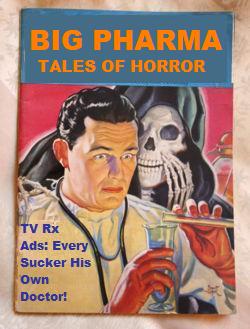Drug prices are rising at crazy rates; in 2015, almost one in three brand-name drugs saw a price increase of 20 percent. In response, more than a dozen states are considering legislation that would call the drug companies to account. Of course, PhRMA is fighting states on drug pricing.
On June 3, 2016, Vermont’s governor signed into a drug transparency law intended to make drug companies justify huge drug price increases. And, since then, the California Assembly’s Health Committee approved a similar drug price transparency bill, which its Senate has passed, intended to make drug companies justify huge drug price increases. That said, Stat reports that the bill has recently been gutted.
Now, a ballot initiative in California, Proposition 61, is designed to reduce the cost of drugs for state agencies. This would not only take a toll on drug company profits, it would set the stage for other states to pass similar initiatives. Not surprisingly, PhRMA has already put $70 million into fighting this initiative.
Proposition 61 would keep California agencies like MediCal, (California’s Medicaid), which covers poor children, from paying any more for a drug than the lowest price paid by the Veterans’ Administration (V.A.). Ohio has a similar initiative, but PhRMA may successfully keep it from being voted on by bringing a lawsuit challenging it.
California state agencies today spend $4 billion a year on drugs. If Proposition 61 passes, the state could could save hundreds of millions of dollars. But, some argue that it would be hard to implement.
Most drug prices, including discounts and rebates, are not transparent. So, it could be hard to know exactly what the V.A. is paying. That said, the CBO reported ten years ago that the V.A. pays about 42 percent of the retail prices and Medicaid pays about 52 percent.
California AARP supports Proposition 61 as does the California Nurses Association. But, according to the New York Times, some advocates oppose it for fear that it will lead drug companies to drive up prices at the V.A. and for others even further. It’s not clear whether some or all of these advocates take money from the drug companies and are therefore conflicted.
As important as it is for states to be taking action on drug pricing, state action is not likely to succeed at reining in drug prices as much as needed. The pharmaceutical industry is too powerful. But, state activity keeps a spotlight on the pharmaceutical industry and that in turn keeps pressure on Congress to act. How long that will take, however, is anyone’s guess.
Here’s more from Just Care:
- Six ways to save on your drug costs if you have Medicare
- Regulating drug prices is long overdue
- How safe are the drugs you’re taking?











…BigPharma is a major part of why Medicare, Medicaid and other state funded healthcare programmes are in financial trouble. Only here in the US are drug prices so obscenely high because they have the government’s ear and know they can get away with it. They claim the high prices are because of R&D and production costs, yet they receive large grants from government for research which is often undertaken at universities, many of which are publicly funded, and manufacture these medications in countries that pay little more than slave labour wages.
However they somehow have more than enough money to run long, high production value adverts during major events (like the Superbowl), slick ads in periodicals and journals, attend and even sponsor conventions for the medical profession, fund campaigns against lowering drug costs as well as alternate forms of medication, and are able to pump hundreds of millions into lobbying Congress to get their way. They also manage to market many of the same medications to other nations often for far less than here.
Most of America is not affluent, more and more people are falling into poverty as wages and benefits like Social Security stagnate while costs, including healthcare, keep rising. Curing major diseases like cancer and HIV is not BigPharma’s goal as it would pretty much put them out of business. Allowing substances like cannabis extracts (which have been proven to work for a number of conditions often with much greater success and almost no side effects than BigPharma’s products) to become more accessible is seen a a serious threat to their ability to effectively gouge American citizens and government funded healthcare agencies.
Under previsions of the TPP, they stand to gain even more in the way of setting prices and extending patents, the latter which would further delay the release of more affordable generic medications by decades ensuring them continued big profits.
This is one of the fronts where we need a “revolution” as Mr Sanders called for during the primaries. We need to stand up to BigPharma and say “enough is enough”.